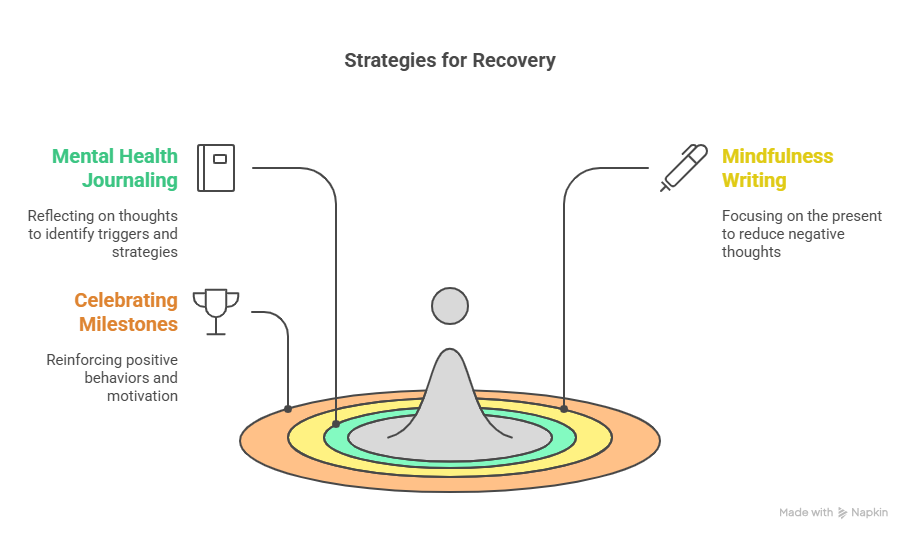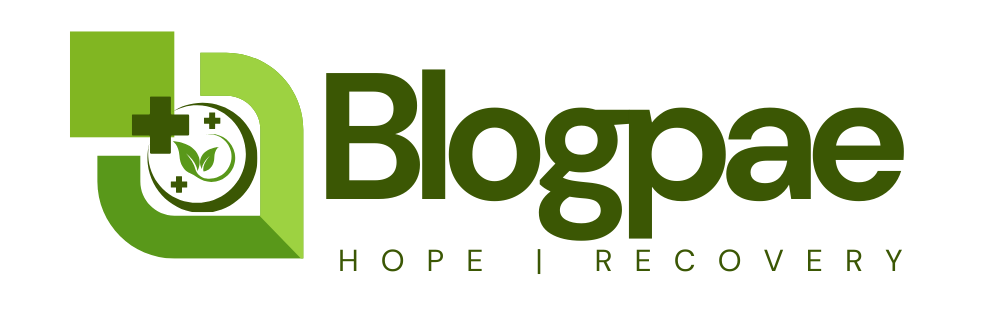Overcoming fentanyl addiction is a challenging journey, but with the right tools, it can become more manageable. One effective method I’ve discovered is using recovery journal prompts to reflect on my experiences and emotions. By putting my thoughts into words, I’ve been able to process my struggles and celebrate my successes.
Mental health journaling has been a cornerstone of my recovery, allowing me to explore my feelings and develop a healthier mindset. Through this practice, I’ve gained valuable insights into my behavior and emotions, helping me navigate the complexities of addiction recovery.
Key Takeaways
- Discover the power of reflection in overcoming addiction
- Learn how journaling can support your recovery journey
- Explore the benefits of mental health journaling for emotional well-being
- Find inspiration in personal stories of recovery
- Understand the importance of self-care in maintaining sobriety
My Journey from Addiction to Recovery
Through emotional healing prompts, I navigated the complex journey from addiction to sobriety. Journaling became my cornerstone, allowing me to process my emotions and reflect on my experiences. Self-reflection exercises helped me identify patterns and triggers, crucial steps in my recovery.
As I progressed, I found solace in expressing my feelings and thoughts on paper. This practice not only aided in my healing but also provided a sense of accomplishment and motivation to continue on my path to recovery.
The Power of Recovery Journal Prompts in Healing
Journaling with specific recovery journal prompts has been instrumental in navigating the complexities of healing from addiction. These mindfulness writing prompts help individuals process their experiences and emotions, fostering a deeper understanding of themselves.
Some benefits of using recovery journal prompts include:
- Enhanced self-awareness
- Improved emotional regulation
- Increased motivation for recovery
By incorporating trauma recovery journal techniques into daily practice, individuals can better cope with their past traumas and work towards a healthier future.
Prompts for Acknowledging Your Addiction
Acknowledging addiction is a crucial step towards recovery, and journaling can be a powerful tool in this process. By using writing therapy prompts, individuals can gain a deeper understanding of their addiction and the factors that contribute to it. This self-reflection is key to developing effective coping strategies and working towards sobriety.
1. Recognizing Your Relationship with Fentanyl
Understanding the nature of your relationship with fentanyl is crucial. Reflect on how your addiction began, the factors that contributed to it, and how it has impacted your life.
2. Identifying Triggers and Patterns
Identifying the triggers and patterns associated with your addiction can help you anticipate and manage cravings. Consider the circumstances, emotions, and people that have led to your fentanyl use in the past.
3. Documenting Your Rock Bottom Moments
Documenting your rock bottom moments can be a therapeutic way to acknowledge the severity of your addiction. Reflecting on these experiences can motivate you to continue your recovery journey.
Prompts for Building Recovery Motivation
Motivation is the driving force behind a successful recovery from addiction. As individuals navigate their journey towards sobriety, it’s essential to maintain a positive and motivated mindset. Recovery journal prompts can play a significant role in this process by encouraging self-reflection exercises that foster a deeper understanding of one’s goals and aspirations.
4. Visualizing a Clean Future
One effective way to build recovery motivation is by visualizing a clean future. This involves imagining yourself in a positive, healthy environment, free from the grip of addiction. By vividly picturing this future, you can strengthen your resolve to stay on the path of recovery.
5. Listing Reasons to Stay Sober
Another powerful exercise is listing the reasons why you want to stay sober. Whether it’s to rebuild relationships, improve your health, or achieve personal goals, having a clear list of reasons can serve as a constant reminder of your motivations.
6. Exploring What You’ve Regained in Recovery
Reflecting on what you’ve regained in recovery can also be incredibly motivating. This could include improved physical health, renewed relationships, or a sense of purpose and direction. By focusing on these gains, you can reinforce your commitment to your recovery journey.
Prompts for Processing Difficult Emotions
Recovery from addiction involves confronting and processing a range of challenging emotions, which can be effectively managed through reflective journaling. This process enables individuals to understand their emotional landscape better and develop healthier coping mechanisms.
Addressing Shame and Guilt
Shame and guilt are common emotions experienced by individuals recovering from addiction. Journaling about these feelings can help process and release them. For instance, writing about the sources of shame and guilt can provide clarity and perspective.
Expressing Anger Constructively
Anger is another significant emotion that can arise during recovery. Constructive expression of anger through journaling can prevent it from becoming a trigger for relapse. Techniques such as writing letters (not necessarily to be sent) or describing anger in detail can be therapeutic.
| Emotion | Journaling Prompt | Benefit |
|---|---|---|
| Shame/Guilt | Describe the sources of your shame and guilt. | Release negative emotions |
| Anger | Write a letter expressing your anger. | Constructive expression |
| Grief/Loss | Reflect on your losses and how they’ve impacted you. | Process and heal |
Finding Joy in Small Victories
Celebrating small victories is crucial in the recovery journey. Journaling about these moments can enhance positive reinforcement and motivate continued progress.
Navigating Grief and Loss
Grief and loss are inevitable parts of the recovery process for many. Journaling can provide a safe space to explore these feelings, helping individuals navigate their emotional pain and find a path towards healing.
Prompts for Rebuilding Relationships
One of the most challenging yet rewarding aspects of recovery is rebuilding relationships that were damaged or strained due to addiction. Mindfulness writing prompts can be particularly helpful in this process, allowing individuals to reflect on their actions and the impact they had on others.
Reflecting on Relationship Damage
Understanding the damage caused by addiction is crucial. Using a trauma recovery journal, individuals can explore the specific ways in which their actions affected their loved ones.
Drafting Amends Letters
Writing letters of amends can be a therapeutic way to acknowledge past wrongs and express a commitment to change. This practice helps in taking responsibility for one’s actions.
Appreciating Your Support System
Recovery is often supported by a network of caring individuals. Reflecting on and appreciating this support system can strengthen relationships and foster a sense of gratitude.
| Relationship Aspect | Action | Benefit |
|---|---|---|
| Reflecting on Damage | Writing in a trauma recovery journal | Understanding and healing |
| Drafting Amends | Using mindfulness writing prompts | Acknowledging past wrongs |
| Appreciating Support | Reflecting on support systems | Strengthening relationships |
Prompts for Developing Healthy Coping Skills
Healthy coping skills are the foundation upon which a sustainable recovery is built. Developing these skills is crucial for managing cravings, handling stress, and maintaining overall well-being. By incorporating writing therapy prompts into your daily routine, you can cultivate effective coping strategies that support your recovery journey.
Creating a Craving Action Plan
When faced with cravings, having a plan in place can make a significant difference. Use recovery journal prompts to outline your action plan, including steps such as reaching out to a support person, engaging in a distracting activity, or practicing relaxation techniques.
Exploring Alternative Stress Relief
Stress is a common trigger for relapse, making it essential to find healthy ways to manage it. Explore alternative stress relief methods such as meditation, yoga, or creative pursuits. Reflect on these experiences in your journal to identify what works best for you.
Building a Daily Wellness Routine
A consistent daily routine that includes healthy habits can significantly enhance your recovery. Use journal prompts to plan and track your daily wellness activities, such as exercise, healthy eating, and sufficient sleep.
| Coping Skill | Benefits | Examples |
|---|---|---|
| Craving Action Plan | Reduces relapse risk, manages cravings | Reaching out to a sponsor, practicing mindfulness |
| Alternative Stress Relief | Reduces stress, improves mood | Meditation, yoga, creative activities |
| Daily Wellness Routine | Enhances overall well-being, supports recovery | Exercise, healthy eating, sufficient sleep |
Prompts for Rediscovering Your Identity
The journey of recovery is not just about overcoming addiction, but also about rediscovering the person you are and want to become. As individuals progress in their recovery, it’s common to reflect on their past, exploring who they were before addiction, and who they are becoming in the present. This process of self-discovery is crucial for rebuilding a sense of identity and purpose.
17. Who Was I Before Addiction?
Reflecting on your life before addiction can help you reconnect with your past interests and passions. Consider writing about your hobbies, relationships, and goals during that time. This exercise can help you understand how your identity has evolved and what aspects of your pre-addiction self you might want to reintegrate into your current life.
18. Who Am I Becoming in Recovery?
As you journey through recovery, you are continually growing and changing. This prompt encourages you to explore your current values, aspirations, and the person you are becoming. It’s an opportunity to celebrate your progress and set new goals for your future.
19. Identifying New Passions and Interests
Recovery often provides the opportunity to discover new passions and interests. This could be through trying new activities, revisiting old hobbies, or exploring entirely new areas of interest. Reflecting on these new passions can help you build a fulfilling life in recovery and further define your identity.
Through these self-reflection exercises and emotional healing prompts, individuals in recovery can gain a deeper understanding of themselves, fostering a stronger sense of identity and purpose. By exploring their past, present, and future, they can cultivate a more compassionate and meaningful relationship with themselves.
Prompts for Handling Setbacks and Celebrating Progress
Navigating the complexities of recovery requires a balanced approach to handling setbacks and celebrating successes. This balance is crucial for maintaining mental health and fostering a positive mindset.
Learning from Relapse Thoughts
One effective way to handle setbacks is through mental health journaling. By reflecting on thoughts and feelings associated with relapse, individuals can identify triggers and develop strategies to mitigate them.
Navigating Difficult Days
Mindfulness writing prompts can help individuals stay grounded on challenging days. These prompts encourage a focus on the present moment, reducing the likelihood of succumbing to negative thoughts.
Celebrating Recovery Milestones
Celebrating milestones is equally important, as it reinforces positive behaviors and motivates continued progress. Reflecting on how far one has come can be a powerful tool in the recovery journey.

Prompts for Building a Sustainable Future
The path to a sustainable recovery involves several critical steps, including setting realistic goals and creating boundaries. Building a future free from addiction requires a holistic approach that incorporates various strategies to maintain sobriety.
One of the foundational elements of a sustainable recovery is setting achievable goals. This involves reflecting on what you want to accomplish in your recovery journey and breaking down these objectives into manageable steps.
Setting Realistic Recovery Goals
Setting realistic recovery goals is about understanding your capabilities and limitations. It’s essential to be honest with yourself about what you can achieve in a specific timeframe.
- Identify your short-term and long-term recovery goals.
- Break down larger goals into smaller, achievable tasks.
- Celebrate your successes along the way to stay motivated.
Creating Boundaries for Sobriety
Creating boundaries is crucial for maintaining sobriety. This involves identifying situations, people, or environments that could trigger a relapse and establishing clear limits.
| Boundary Type | Description | Example |
|---|---|---|
| Emotional | Limiting emotional exposure to toxic relationships. | Avoiding arguments with family members who trigger negative emotions. |
| Environmental | Avoiding places or situations that could lead to relapse. | Staying away from bars or parties where substance use is prevalent. |
| Social | Setting limits with friends or acquaintances who might influence substance use. | Surrounding yourself with supportive friends who encourage sobriety. |
Letter to Your Future Self
Writing a letter to your future self can be a powerful reflection tool. It allows you to express your hopes, fears, and aspirations for the future, providing a snapshot of your current state of mind and recovery goals.
“The future belongs to those who believe in the beauty of their dreams.” – Eleanor Roosevelt
Consider reflecting on the following when writing your letter:
- What are your hopes for your recovery journey?
- What challenges do you anticipate, and how will you overcome them?
- What steps will you take to continue growing and maintaining your sobriety?
Conclusion: How Journaling Continues to Guide My Sobriety
Journaling has been a cornerstone of my recovery from fentanyl addiction. Through trauma recovery journal prompts, I’ve been able to process difficult emotions and experiences. Self-reflection exercises have helped me identify triggers, build motivation, and develop healthy coping skills. By continuing to journal, I’ve maintained sobriety and rebuilt my life.
The 25 journal prompts shared in this article have been instrumental in my journey. They’ve enabled me to acknowledge my addiction, visualize a clean future, and celebrate recovery milestones. As I move forward, I remain committed to journaling as a tool for sustained recovery and personal growth.
FAQ
What are recovery journal prompts, and how can they help in overcoming addiction?
Recovery journal prompts are guided questions or statements that help individuals reflect on their experiences, emotions, and progress in their recovery journey. They can aid in overcoming addiction by facilitating self-reflection, emotional healing, and personal growth.
How do I get started with mental health journaling?
To start mental health journaling, choose a comfortable and private space, select a journal that feels personal to you, and begin with simple self-reflection exercises or guided prompts. Consistency is key, so try to establish a regular journaling routine.
Can writing therapy prompts really make a difference in my recovery?
Yes, writing therapy prompts can be a powerful tool in recovery. They help process difficult emotions, identify patterns and triggers, and develop healthy coping mechanisms, ultimately supporting a more sustainable and fulfilling recovery.
What are some mindfulness writing prompts that can help with emotional healing?
Mindfulness writing prompts, such as describing a peaceful memory, writing about the present moment, or reflecting on gratitude, can help cultivate a sense of calm and facilitate emotional healing.
How can I use a trauma recovery journal to process my experiences?
A trauma recovery journal can be used to process experiences by writing about the traumatic event, exploring associated emotions, and reflecting on how the experience has impacted your life. This can help integrate the trauma into your narrative and promote healing.
Are there any specific journal prompts that can help me rebuild relationships damaged by addiction?
Yes, journal prompts such as reflecting on relationship damage, drafting amends letters, and appreciating your support system can help you rebuild and strengthen relationships damaged by addiction.
How can journaling help me develop healthy coping skills and manage cravings?
Journaling can help develop healthy coping skills by identifying triggers, creating a craving action plan, and exploring alternative stress relief methods. Regular reflection on your experiences and emotions can also enhance your ability to manage cravings and navigate challenging situations.
Reference




